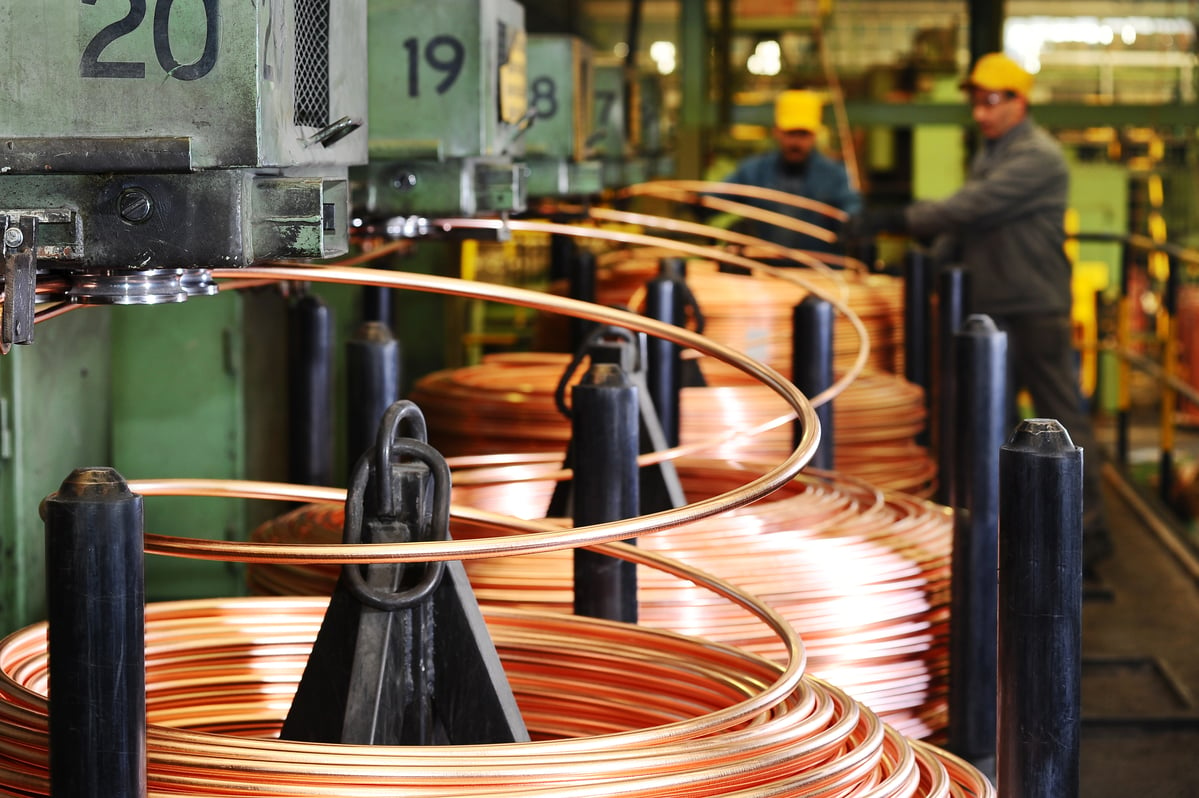It was only last month that Freeport-McMoRan (FCX 2.08%) got its massive Grasberg gold and copper mine in Indonesia going again following a two-month hiatus as the government investigated a series of tragic mishaps.
Yet with the first shipments of copper concentrate out the door and full production having not yet been realized, a new threat looms as a government ban on exports of unprocessed copper is poised to go into effect in 2014. Freeport only processes about 40% of its copper in-country, and unless it can get special dispensation from Indonesia it will have to cut back on production.
Grasberg is the world's largest gold mine and is its third-largest copper mine. Freeport had expected that it would produce some 500,000 tonnes of copper in 2013, along with 1.25 million ounces of gold. As a result of the stoppage, however, concentrates of gold, copper, and silver will come up short, and the ban could make make it even shorter next year.
The miner has been negotiating with the Indonesian government for a new contract for some time now, even though it's current contract expires in 2021. Freeport is looking to invest some $15 billion and is seeking assurances that the investment will be worthwhile.
Yet in an effort to comply with the new regulations, Freeport entered into memorandums of understanding with two local smelters to process its concentrates, but the hitch is that they won't go into production until 2017. Without being given the flexibility to bypass the new rules, the miner will be forced to cut production to meet the new restrictions.
Copper mining operations may also be threatened in Chile where Barrick Gold's (ABX 1.83%) Pascua-Lama gold project has been stalled. The country's leading candidate for the presidency recently said that the country's mining royalties system needs to be reworked while adjustments to the funding policies for government-owned Codelco, the world's biggest copper miner, also needed to be implemented. Chile itself is the largest producer of the red metal, with BHP Billiton, GlencoreXstrata, and Anglo American having a significant presence there that would also be affected by a more restrictive environment.
The left-leaning opposition candidate says Barrick needs to comply with the government's dictates before being allowed to go forward, suggesting she won't be allowing the miner to alter the slower pace it's been forced to set. With the $8.5 billion project stalled, Barrick has said that it will reduce capex spending on Pascua-Lama by $1.5 billion-$1.8 billion this year and next.
Similarly, Rio Tinto (RIO 1.41%) and its subsidiary Turquoise Hill Resources (TRQ +0.00%) have been at loggerheads with the Mongolian government over their Oyu Tolgoi project, another massive copper and gold mine suffering from seemingly endless delays. While it was supposedly given the green light again last month, reports that Rio Tinto has laid off thousands of workers suggest all is still not well. The government has twice previously stopped work from progressing.
Copper is widely used in construction, automobile production, and electronics, so perceptions on global economic growth play a large role in how its traded. It got a boost recently as Europe showed surprising economic strength even as China -- the world's largest consumer of the metal -- saw its economy slow.
If Freeport's Grasberg production is severely curtailed, expect the metal's price to soar. Copper already trades 8% higher than it did just two weeks ago, and while it's still below its year-ago level it's close to reaching parity. The copper price boom I've been waiting for may soon be upon us.










